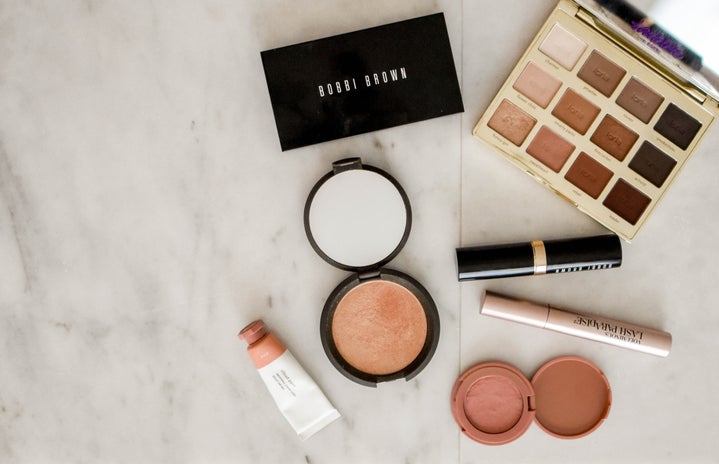Keeping your skin moisturized and healthy is tricky in the wintertime, when the cold temperatures and harsh wind create dry air that removes the natural moisture from your skin. As someone who has lived with dry, sensitive skin my entire life, I’ve decided to share my favorite ways to replenish my skin with much-needed moisture, making it look and feel healthier throughout the season.
1. Moisturize — even more than you think you need to.
Moisturizing at least twice a day should be an essential step in your skin care routine — yes, even for you oily and acne-prone gals. Some of the best moisturizers I’ve tried as a student on a budget are Cerave, Aveeno, Philosophy and Neutrogena. Cerave’s moisturizing lotion and hydrating facial cleanser both help to gently hydrate your skin without spending an arm and a leg. Aveeno’s moisturizer, which won a 2016 Glamour Beauty Awards, is another cheap option that helps tone and add moisture to dehydrated skin. Philosophy has an overnight moisturizer, and while a bit more expensive than other options, it does a great job recharging your skin through the night. Neutrogena also has a bunch of different cheap moisturizers that all help to brighten and hydrate your skin.
2. Make water your best friend.
Drinking water is important for any healthy skin care routine. According to the University of Wisconsin-Madison’s School of Medicine and Public Health, if you’re not drinking enough water on a daily basis, your skin is more likely to appear dry and flaky due to the lack of hydration. Drinking at least eight glasses of water a day will do your skin some good. Along with consuming enough H2O, UW also claims that moisturizing around two minutes after bathing or showering help your vulnerable, porous wet skin absorb more product than when it’s dry.
3. Do your best to reduce your consumption of harmful toxins.
It’s not uncommon for products to contain ingredients that can irritate the skin or worse. According to HuffPost, some ingredients you should watch out for are parabens, synthetic colors, added fragrance, phthalates, sodium lauryl sulfate, formaldehyde and toulene. I know that those words sound scary as a consumer, but the important takeaway is that some can irritate skin (especially if it’s extra sensitive) and others are believed to be carcinogenic. Next time you’re buying new skin care products, remember to check the labels and be mindful of what you’re applying to your body.
4. Exfoliate smartly.
Exfoliating is a delicate procedure in which too much can do more harm than good. But if you know your skin well enough, the right amount can do wonders. The rule of thumb is once a day or every other day for sensitive/dry skin and up to twice a day for oily/acne-prone skin, but it’s important to test out what works for you. Through either chemical or physical methods, the process helps renew skin by removing dead skin cells from pores. There are a lot of different drugstore products to choose from, but first it’s important to figure out what type of skin you have to make the informed choice. The highly-regarded skin care company Paula’s Choice has a comprehensive, science-backed infographic to help you determine your skin type — and you don’t even have to buy their products to use it.
5. Avoid long, hot showers.
Although luxuriously long showers in the winter can be relaxing, they can also be harmful for your skin. According to the University of Pittsburgh Medical Center, too much hot water and soap strips the natural oil barrier from your skin, and can cause redness, irritation, drying and even an overproduction of oil in response. Taking shorter showers and keeping the temperature cooler will help your skin maintain its natural moisture. Don’t forget to moisturize directly after you finish!
6. Invest in a humidifier.
During the winter time, many places tend to blast the heat to balance out the temperature. Since the hot air from the heat is drying — especially in dorms, where the heat is always on — purchasing a humidifier and using it regularly will hydrate the air, and in turn, your skin.


